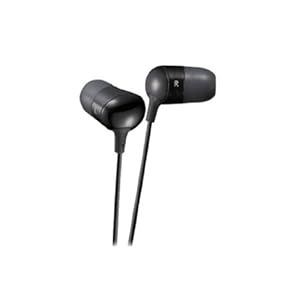
It may seem like an insignificant detail, but the type of headphones you use can have a significant impact on your language learning and the speed in which you reach proficiency and fluency. The right headphones allow you to use more of your "dead time" for language learning, and get more out of each listening session.
I first started the hunt for decent, noise-isolating headphones back in grad school at Cornell. I found that while walking on the street, I had to put the volume way up on my iPod to hear the spoken word material to which I was listening, and I still missed crucial details of content and pronunciation. I was also concerned about damaging my ears by putting the volume up loud enough to override the noise of passing buses and trucks. After trying a couple of different types, I discovered an inexpensive pair of Koss earbuds in the Cornell bookstore, which had foam earplug-like tips. Brilliant.
The Koss earplugs, which are still available, use a squishy, expandable foam rather than rubber to fill the space around the speakers and the walls of your ear. The foam moulds to the shape of your ears, fitting snugly and blocking out external noise considerably. When used without any recording playing, they are just like earplugs, so they allow you to keep the volume low and still hear spoken word material while walking on the street or in noisy areas.
The problem with the Koss headphones was that they did not stay in the ear very well, and if you moved around a lot, they would pop out and you'd have to put them back in. This wasn't a big deal most of the time, but it meant they weren't good for running (unless you wore a beanie overtop).
I eventually discovered an alternative that also uses foam, but which stays in the ears snugly, allowing me to use the headphones even while running or exercising. These are the JVC Marshmallow earbuds. I'm a big fan. You can even use a chainsaw with these guys in and still hear spoken word material clearly at relatively low volume levels. If you want to shell out for proper noise-canceling headphones, I've heard they can be great, but I like that I don't have to think about abusing these.
Why is it important? Well, if you are listening to audio materials for another language while commuting to work or taking a stroll, you can easily miss 30% of the material due to traffic and external noise. Because continuity is so important, that means you're not just losing 30% of listening time, you're losing significant efficiency. By using decent noise isolating or canceling headphones, you can boost your efficiency by 40% or more on time that is otherwise wasted mentally. With the right headphones, you can also combine language learning with a range of additional noisy, but relatively mindless, activities: mowing the lawn, chopping wood, vacuuming, and commuting by train, subway, or on foot. Start adding up the time — it's a lot!
